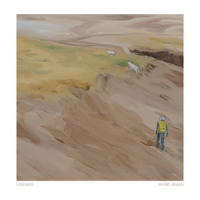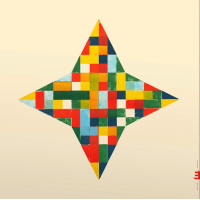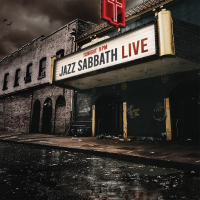Home » Jazz Articles » Album Review » Diego Rivera: Indigenous
Diego Rivera: Indigenous
Named after the famous Mexican artist, Diego Rivera has established himself as a major figure in jazz music. Since 2000, he has played saxophone with an impressive list of artists, including Christian McBride, the Jimmy Dorsey Orchestra, Kurt Elling, and Sophie Milman. He also has an impressive list of his own recordings, along with serving as a tenured professor of jazz saxophone at Michigan State University.
With Indigenous, Rivera explores different musical landscapes and cultures. Each of the songs on the album tells a story. Many of these musical stories focus on the reality of past events, maintaining a sense of awareness. The focus here, however, is not simply to recount the past but to celebrate the future. The songs are intended to bring "a sense of belonging and purpose" and hope for better days ahead.
The album kicks off with Cannonball Adderley's composition "Marabi." This uplifting song celebrates musicians of South Africa who challenged apartheid. Each of the core musicians, including Helen Sung on piano, Boris Kozlov playing bass, and Donald Edwards on drums, is in top form. Etienne Charles sits in, adding an outstanding trumpet performance.
Some of the songs pay respect to Rivera's heritage. "Sombras Del Pasado," for example, was inspired by the Eighth Cavalry Mexican Military Band, which travelled to New Orleans during the late 1800s. Several members of the band stayed in New Orleans to become educators and, as a result, were important figures in the early days of jazz. However, as Rivera points out, their story and legacy remain "in the shadows of jazz history." The song has strong performances by all the musicians. The foundation of the song is a habañera rhythm, which lends itself to improvisation.
Rivera continues his homage to his own cultural background with "Aztlán" and "Sabor a Mi." Aztlán was a region north of Mexico once regarded as the promised land. The concept of Aztlán "served as a symbol of the Chicano movement since the 1960s." The song has an ear-catching and driving beat which is incredibly tight. "Sabor a Mi" is an excellent treatment of "one of the most famous boleros from the pen of Álvaro Carrillo. This song features Etienne Charles playing trumpet alongside Rivera's sax in something of a musical dialogue.
Indigenous certainly has a strong Latin influence, but there is also more of a global presence here. The songs "Asta Ta Malakia Sou" and "Melina Maria," for example, both celebrate Greek melodies and culture. The Yakov Rotblit composition, "Shir LaShalom," is a famous Israeli anti-war anthem.
Rivera also includes "BLM Plaza," a song dealing with the section of Washington DC that was renamed during the protests in the summer of 2020. This song has strong blues elements, as does the composition "Purpose," which tries to capture the strong influence of the blues in jazz music.
The focus of the album, however, is not limited to humans; Rivera also includes his own take on the Stevie Wonder composition "The Secret life of Plants," which was included on the 2020 compilation Tales Of Wonder: A Jazz Celebration of Stevie. This song features strong performances by Helen Sung on piano and Rivera on soprano sax, and is intended to draw attention to organic life. As the album notes suggest, "humans are not the only indigenous life forms around the globe."
The level of musicianship on Indigenous is exceptional, and Rivera uses jazz to convey his message. The songs included here speak of equality, justice, and struggle. Most of all, though, they represent a celebration of life and freedom along with hope for a brighter future.
Track Listing
Marabi; Indigenous; The Secret Life Of Plants; Sombras Del Pasado; Asta Ta Malakia Sou; Aztlan; Sabor A Mi; BLM Plaza; Nefeli; Melina Maria; Purpose; Shir LaShalom
Personnel
Diego Rivera
saxophone, tenorEtienne Charles
trumpetHelen Sung
pianoDonald Edwards
drumsBoris Kozlov
bass, acousticAlbum information
Title: Indigenous | Year Released: 2021 | Record Label: Posi-Tone Records
Tags
PREVIOUS / NEXT
Support All About Jazz
 All About Jazz has been a pillar of jazz since 1995, championing it as an art form and, more importantly, supporting the musicians who make it. Our enduring commitment has made "AAJ" one of the most culturally important websites of its kind, read by hundreds of thousands of fans, musicians and industry figures every month.
All About Jazz has been a pillar of jazz since 1995, championing it as an art form and, more importantly, supporting the musicians who make it. Our enduring commitment has made "AAJ" one of the most culturally important websites of its kind, read by hundreds of thousands of fans, musicians and industry figures every month.
























